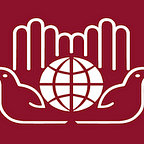Participation, Equality and Respect: The Role of Women in Peace Processes
In almost every conflict, women have a variety of roles: women make up a substantial percentage of active combatants, especially in El Salvador, Eritrea, Sri Lanka, and Zimbabwe. Female supporters are cooks, radio operators, messengers, medical assistants, translators, administrators, and camp leaders within armed groups; and many women are forced to commit to and become dependent on male combatants. Why, then, do post-conflict transition strategies so often underestimate and exclude women and girls?
According to Inclusive Security, “An investment in ensuring women’s full and meaningful inclusion in a transition process is an investment in the stability of the country.” Considering women within disarmament, demobilization, and reintegration (DDR) is crucial to the overall success of the peace process.
Within civilian communities, women’s networks and authority are crucial in driving disarmament. Through public announcements and campaigns, women raise awareness and name the importance of disarming; this leads to weapon surrenders and creates important symbolic meaning for the peace process. Women also often have knowledge of arms routes and caches, which can be useful for finding weapons. The traditional authority of wives and mothers can encourage disarmament within their communities.
In the process of demobilization, eligibility requirements of “one man, one gun” can exclude female combatants and women who were associated with armed forces. Some say that expanding eligibility can reduce the efficacy of DDR programs and divert important resources; however, even women who had administrative or logistical roles still depend on military support systems and lifestyle and benefit from demobilizing.
Within camps where ex-combatants receive training and aid packages, it is essential that women and girls have access to separate housing, necessary medical and sanitary supplies, and trauma-informed counseling for those who have suffered sexual assault. When women are registered as individuals (as opposed to with a partner or family) and receive support, they have more independence and use resources for family sustenance and community building.
Female ex-combatants participate in financial and social reintegration in different ways from male ex-combatants, due to traditional ideas around gender and how social roles change post-conflict. Educational and childcare programs are especially important to help women participate in reintegration processes; when returning from combat, women must handle the overwhelming burden of household tasks and face barriers to accessing job training, counseling, and other services. Within the structures of armed groups, women sometimes hold higher positions than their traditional society allows. Economic reintegration must take into consideration the jobs that women want and their expertise and provide training and resources accordingly.
Women who integrate into civil society are crucial for the reintegration of ex-combatants of all ages and genders. Already established women’s groups and networks can help develop programs to address the immediate needs of returning combatants. 55% of male ex-combatants in Sierra Leone cited women in the community when asked who played a significant role in helping them reintegrate; 20% named traditional leaders, and 32% named international aid workers. Existing women’s networks provide legitimacy, local knowledge, and structure with programs that help ex-combatants through counseling, medical assistance, education, and skills training.
Written By Lydia Henning, Refuge Press Intern, Summer 2019
About the IIHA
The Institute of International Humanitarian Affairs (IIHA) prepares current and future aid workers with the knowledge and skills needed to respond effectively in times of humanitarian crisis and disaster. Our courses are borne of an interdisciplinary curriculum that combines academic theory with the practical experience of seasoned humanitarian professionals. The IIHA also publishes on a wide range of humanitarian topics and regularly hosts a number of events in the New York area, including the annual Humanitarian Blockchain Summit and Design for Humanity Summit.
For media inquiries, please contact: Camille Giacovas, Communications & Research Officer, IIHA cgiacovas@fordham.edu
